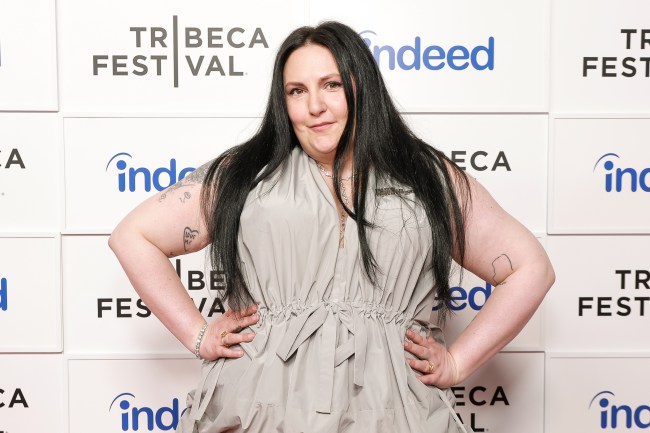Lena Dunham is looking back on claims of a lack of diversity in her iconic series “Girls.” Dunham created, produced, wrote, and starred in the HBO show, which aired from 2012 to 2017. Almost a decade after wrapping, the showrunner is reflecting on how the series was critically received at the time.
“I think one of the profound issues around ‘Girls’ was that there was so little real estate for women in television,” Dunham told The Independent, “[so] that if you had a show called ‘Girls,’ which is such a monolithic name, it sounds like it’s describing all the girls in all the places. And so if it’s not reflecting a multitude of experiences, I understand how that would be really disappointing to people.”
Dunham is now returning to TV again with her semi-autobiographical Netflix series “Too Much,” which has a large ensemble cast representing a slew of races, genders, and nationalities as the show takes place in both New York City and London. “The thing I have really come to believe is that one of the most important things is not just diversity in front of the camera, but it’s diversity behind the camera,” Dunham said, citing how her experience with “Girls” impacted how she approached “Too Much.” “As a producer, one of my goals is to bring a lot of different voices into a position where they can tell their story.”
The discussions around diversity in “Girls” plagued the series ever since it premiered in 2012. The NYC-set show had a white core cast; Dunham famously introduced Donald Glover in Season 2 as one of her onscreen love interests, seemingly in direct response to the criticisms. Glover’s character Sandy was a devout Republican in a subversive creative decision.
Dunham said in 2012 that the casting was not due to the diversity controversy, though. “Some are people of color, some are not, some are caucasian because I went to the actors who I wanted to work with and told the stories that seemed vital and exciting,” she said. “I don’t care about satisfying the critics, but I care about satisfying my viewers. And I know I have viewers who are women of color who want to see themselves reflected onscreen. So, that’s what matters to me. It doesn’t matter to me to satiate people who are looking to kind of put destructive energy onto the world — not to sound like a hippie.”
Dunham added in 2018 that she later discussed Glover’s character with him and wanted to make sure he was comfortable with the arc. “I emailed him later to say, ‘I hope you feel the part on “Girls” didn’t tokenize you,’ and his response was really Donald-y and enigmatic: ‘Let’s not think back on mistakes we made in the past, let’s just focus on what lies in front of us,’” she said (Glover has been vocal about his love of working with Dunham ever since starring in the series.)
The magnified criticisms of “Girls” at the time in part led to Dunham taking an acting hiatus. Dunham told The Times early this season, “I always joke that I need a T-shirt that says, ‘I survived New York media in 2012 and all I got was this lousy T-shirt.’ And all I got was this lousy PTSD. I didn’t really understand how to distinguish between what was and wasn’t necessary for the public. I felt confused about how I was supposed to respond. I thought if I explain properly who I am, or give a glimpse of who I am, people are going to have a different perception of me, that we would be friends. But no one cares — and that’s fine.”


